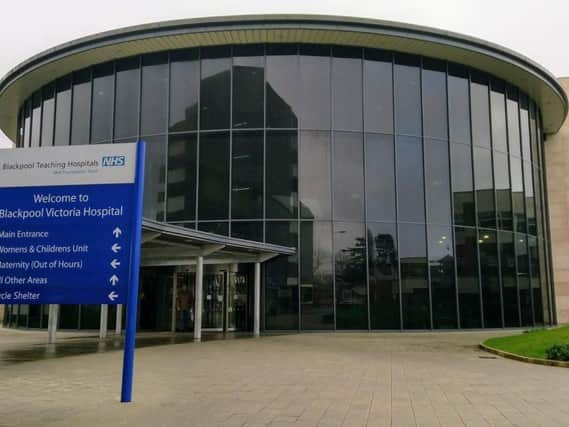Funding fears revealed over Blackpool hospital's winter plans


The Fylde Coast Winter Resilience Plan will cost £3.5m to implement, with only £2.5m currently available to fund it.
But a meeting of the board of directors of Blackpool Teaching Hospitals NHS Foundation Trust said they hope to be able to plug the financial gap.
Advertisement
Hide AdAdvertisement
Hide AdThe Trust has been given a grant from NHS Improvement of more than £600,000 to improve the flow of vulnerable patients from hospital into the social care system in order to free up some beds.
Berenice Groves, interim director of unscheduled care, said the main challenge was to reduce the length of stay of patients.
She said: "Last year there was a lot of risk in the system as we didn't have enough bed capacity coming through."
Targets for this year include reducing length of stay by 1.18 days and increasing the number of patients discharged in the morning by 30 per cent, equivalent to 17 or 18 patients being allowed home in the morning compared to three at present.
Advertisement
Hide AdAdvertisement
Hide AdIt is also hoped to reduce the number of long-stay patients by at least 26 per cent which would free up 30 beds.
Work is also being undertaken with partners in the community, including Blackpool Council, to ensure patients can leave hospital into appropriate accommodation in the care system where necessary.
Ambulance chiefs have also expanded their clinical hub to support more patients.
But Mrs Groves warned there were risks to the plans including if there was a harsher than predicted winter and worse than expected outbreaks of flu.
Advertisement
Hide AdAdvertisement
Hide AdBoard chairman Pearse Butler said there was concern some of the funding for the plan had not been agreed and this needed to be agreed between the Trust and the CCG (clinical commissioning group).
He added it was often A&E which bore the brunt of the increased demand in winter through increased waiting times.
Mr Butler said: "This is not an A&E problem, it simply manifests itself in A&E.
"It's all about the way we manage flow. We can only hit our targets if the whole system works well together."